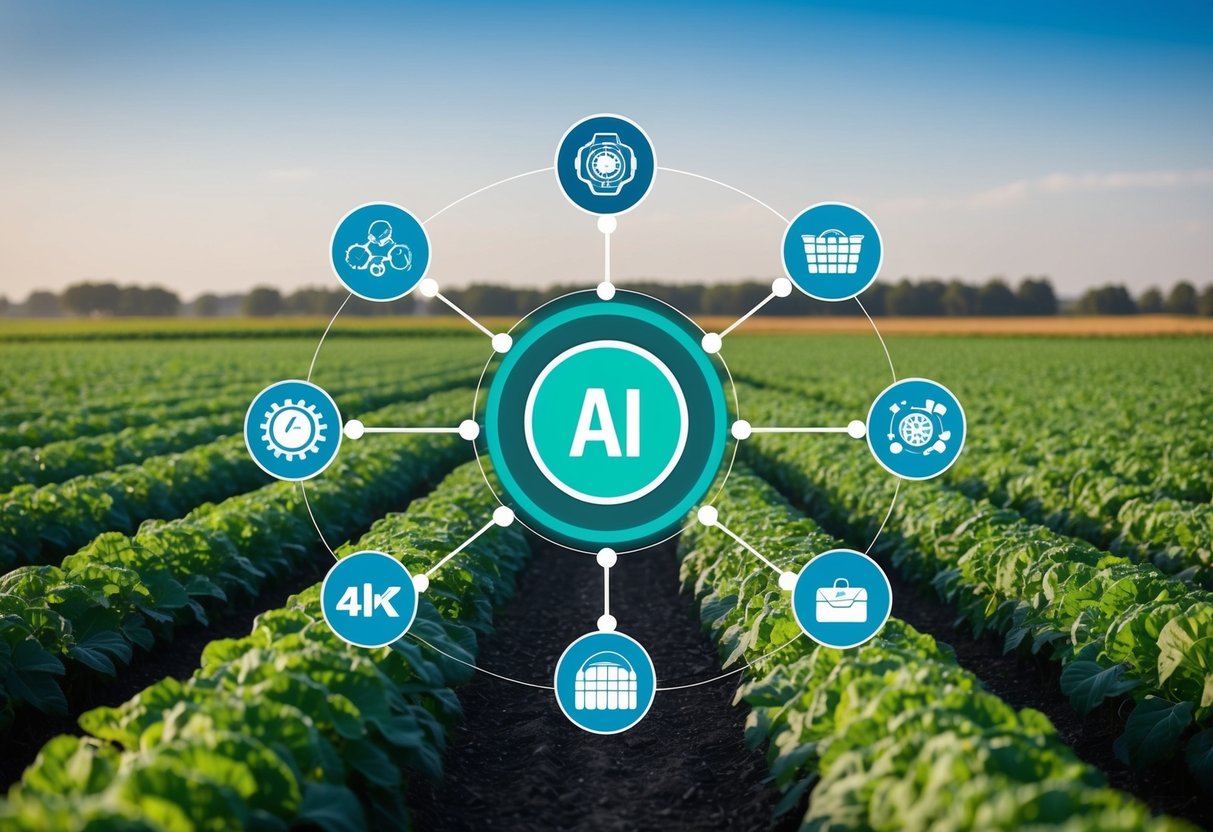
Artificial Intelligence is rapidly transforming the agricultural sector by enhancing food safety and improving supply chain transparency. Through advanced data analytics and machine learning algorithms, AI enables real-time monitoring of crop health and early detection of potential disease outbreaks. This technology ensures that food reaches consumers safely, reducing health risks and preventing contamination.
In addition to maintaining food quality, AI facilitates greater transparency within supply chains. By providing detailed insights into every stage of the food production process, from farm to table, AI aids in tracing the origins of produce. This transparency fosters trust among consumers and helps maintain regulatory compliance.
AI’s role in agriculture extends to optimizing resource allocation, reducing wastage, and increasing operational efficiency. Automated systems and predictive analytics support farmers in making informed decisions regarding planting, irrigation, and harvesting. This integration of AI into agriculture not only bolsters food safety but also enhances the overall resilience of the food supply chain.
The Role of AI and ML in Modern Agriculture
Artificial Intelligence and Machine Learning are revolutionizing modern agriculture. They enhance precision agriculture and improve pest and disease identification, facilitating robust crop management techniques and ensuring food safety.
Advancements in Precision Agriculture
Precision Agriculture relies fundamentally on AI and Machine Learning to optimize crop production. By analyzing datasets from satellites, drones, and sensors, these technologies allow farmers to make informed decisions on irrigation, fertilization, and harvesting. Machine learning algorithms predict soil and climate conditions, minimizing resource waste. Deep Learning takes this further by understanding complex patterns in agricultural landscapes, facilitating automated monitoring systems that streamline farming operations and increase efficiency. These innovations contribute to the sustainable management of agricultural resources.
AI-Driven Pest and Disease Identification
AI and ML provide invaluable tools for pest and disease identification. Through image recognition and data analysis, AI identifies threats with remarkable accuracy and speed. Machine Learning models predict outbreaks and suggest timely interventions, reducing reliance on chemical pesticides. Deep Learning algorithms further enhance detection capabilities, enabling early response and minimizing potential damage. With AI’s assistance, farmers can effectively mitigate risks, ensuring healthier yields and improving profitability. Automated pest and disease management systems also foster an environmentally friendly approach to farming.
Ensuring Food Safety through AI
AI technologies enhance food safety by improving contamination detection and enforcing strict quality control measures. These advancements help reduce foodborne illnesses and protect public health by detecting defects and ensuring compliance with safety standards.
Contamination Detection and Safety Evaluation
AI systems play a crucial role in identifying contaminants in food products. Machine learning models analyze images and sensor data to detect harmful elements such as bacteria, toxins, and foreign objects. This technology surpasses traditional methods by offering higher accuracy and speed.
Robotics and automation further bolster these efforts by consistently monitoring production lines. Real-time assessment ensures that compromised products are swiftly identified and removed, reducing the risk of foodborne illnesses. Employing AI in microbial detection helps efficiently evaluate safety standards, thus safeguarding public health and preventing potential outbreaks.
Quality Assurance and Control Measures
AI-driven quality control measures facilitate stringent monitoring throughout the supply chain. These systems perform detailed inspections to ensure food products meet established safety criteria. By employing image recognition and predictive analytics, AI identifies defects and inconsistencies, helping suppliers maintain high quality standards.
Moreover, AI algorithms streamline data collection and analysis, providing businesses with insightful metrics. This data-driven approach enables predictive maintenance and proactive adjustments in processing environments. Such advancements in food safety protocols enhance transparency and reduce risks associated with distribution, fostering consumer trust and ensuring consistent product quality.